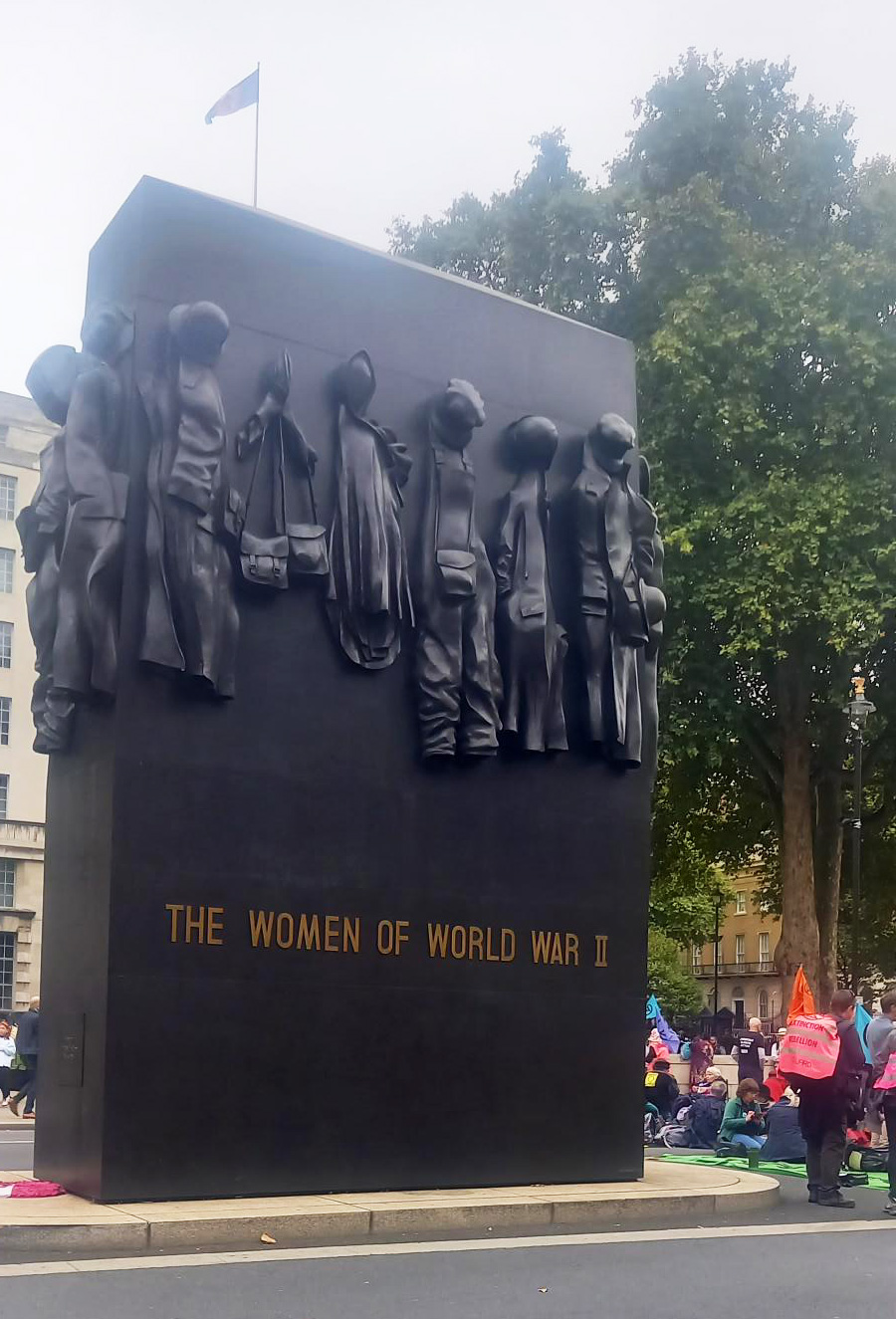
Back in 2013, then-Prince Charles unveiled a monument commemorating the women spies of World War II: one small plinth for women agents, one giant landmark for womankind. Its erection ensured that seventy-five women, long ignored by history, finally received due recognition for their service to the UK. Their historical chapter, mothballed by its clandestine nature and thick layers of time, was finally being told. The resulting, and gripping, news stories about the monument and the women’s role in history put them at the cutting edge of the war, far away from their usual places on the home front, the social history bubble, and Bletchley Park (where the Enigma code was broken).
As the chilly December air revived their stories, the women’s portraits spilled over the news, like photographs from an unspoken box that every house holds: one that is seldom opened; but once happened upon, it’s mesmerizing. Two things became clear in 2013: there was genuine interest in women’s frontline experiences, and it was utterly amazing that we had not heard about them before.
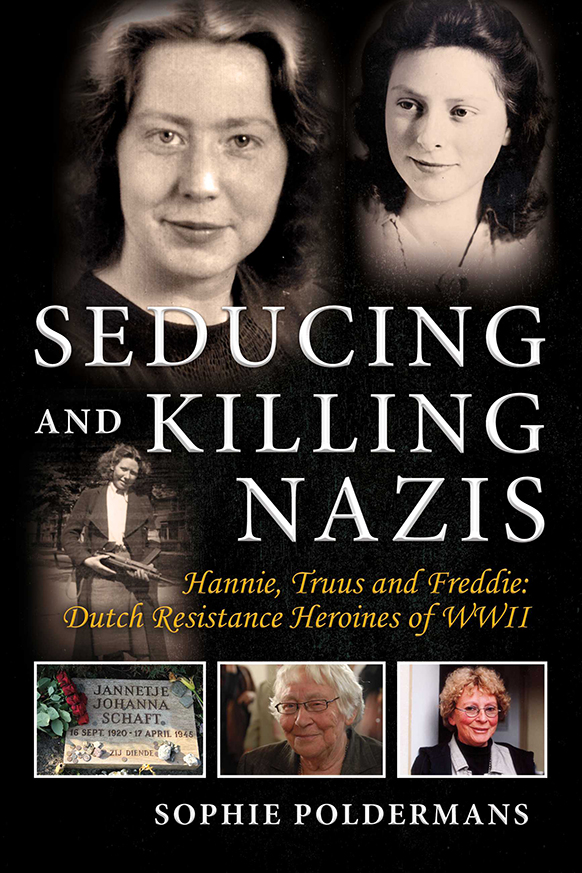
The work of Dutch author Sophie Poldermans has taken off against this background of long-overdue and international appetite for the female account of war. Her book, Seducing and Killing Nazis, relays the duties carried out by three Dutch women, all teenagers at the outbreak of World War II: Hannie Schaft, age 19, and sisters Truus, 16, and Freddie, 14, Oversteegen. They took it upon themselves to go into bars, flirt with and seduce senior Nazi officers before luring them into the forest to shoot them. However, they had “to fight for recognition.” Like the women spies from the UK, these girls’ story was also a long and deeply buried treasure.
Some zeitgeist judging, room reading, and strategic timing helped Sophie rescue the women’s story from the depths of obscurity and set it between the covers of a best seller.
*
WOW: You have managed to make an overlooked chapter of history—Dutch female resistance, in particular women in the armed resistance—into a best seller on the New York Post and Amazon lists. That cannot happen overnight: Where did it all take off? Was there a big bang?
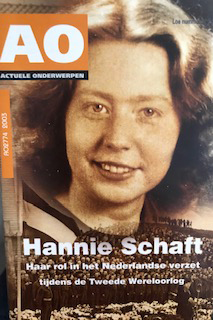
Sophie: I grew up in the city of Haarlem and wrote a thesis in high school on Hannie Schaft at the age of 16, when I had to find a self-chosen topic for my history class in high school. I grew up in the same town and was about the same age as Hannie. I posed myself the impossible question: What would I have done? I interviewed Truus Oversteegen for the thesis. She shared her story with me and immediately a bond grew from there. Truus introduced me to her sister, Freddie, and asked me to be the keynote speaker at the National Hannie Schaft Commemoration in 1998. In 2003, I wrote the booklet on Hannie Schaft for high school students (AO publishers), which is still in regular use.
When [the last of the trio] Freddie Oversteegen passed away in September 2018, her obituary appeared in The Washington Post and went viral. The media were already dealing with the topic. I decided that this was the moment to share the women’s story. I had to move fast. Was this the time to translate the booklet? No. It needed to be a little bigger and feature more material. It had been a dream to do something with this story since high school, and now the momentum was there—the world was ready. I had known Truus and Freddie Oversteegen for twenty years and had carried out research over the past twenty, so I “only” had to write down the story, and it was out in August 2019.
WOW: How did you manage to land all those great commissions in Time, Ms. Magazine, and the like?
Sophie: It all happened off the back of Freddie Oversteegen’s viral obituary. I had provided the journalist with the information in English. A huge demand for information on this story in English then arose, and one feature in top tier media opened so many doors and had a snowball effect. People’s World was (probably) the first interview request, and Time followed the next day. Time was one of the first and definitely the biggest.
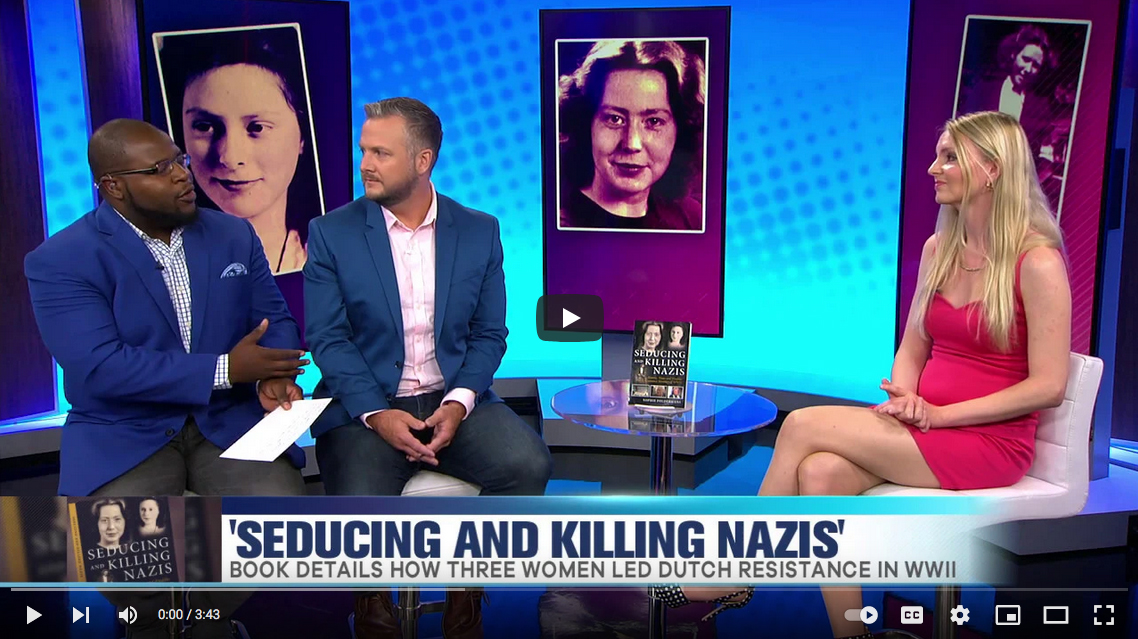
The main focus was the US, and then UK media outlets followed with their interest, firstly The Independent, then the I newspaper in London, the Daily Mail and also radio stations, like Talk Radio. I did a television interview in Chicago while there on book tour, which helped a lot. Podcasts followed after touring. The New York Post published my interview at the end of 2019, right before the end-of-year best seller list. I was lucky that many readers liked my interview, and then my book ended up on the best sellers’ list. That opened doors for New York and resulted in receiving the “21 Leaders for the 21st Century Award” from New-York-City-based Women’s eNews in 2021.
WOW: Which leads us nicely to: why did you choose to publish the English-language version of your book before the Dutch one?
Sophie: There was such a demand for the information in English, generated by The Washington Post. I saw it as my personal mission to share the women’s stories with future generations and had always wanted to write it down in English. I was a Rotary exchange student in Sandpoint, Idaho. During Rotary lunches and in school, I told the story of Hannie, Truus, and Freddie, and I always got so many positive reactions from Americans. I discovered the wide interest in this story in the New World.
WOW: Sounds like you managed to read the room way in advance. Apart from the language, how do the Dutch and English mediums of your books vary, including to appeal to their respective readerships?
Sophie: It is important to note that neither of the books can be called a translation: I have an English and a Dutch version. The English language [version] is self-published, but the Dutch one is going through a regular publisher in the Netherlands, which is why it’s taking a while, but it will be in every bookstore. A US and a Canadian publisher were interested, but the procedure would take years and be too slow, so I decided to self-publish the English version. I was so eager to share this story with the world. I pioneered with self-publishing (through BookBaby USA). In the spring of 2023, the Dutch version of the book will be launched.
Self-publishing is more expensive than publishing with a regular publisher, but way faster and generates higher revenues. Practical obstacles arose like the publisher and audience being in the US but me living in Netherlands. Printing, shipping, and storage costs were so incredibly high that I decided to go with print on demand. There were still distribution obstacles in the beginning. It was hard to get it in bookstores, and it took a while before Amazon was fully stocked.
The English version is more like a historical account, whereas the Dutch is written from a different perspective and is more narrative. In the Dutch version, I write from the perspective of the three young women, really diving into their skins and heads and let them live their story, speak and think. In addition, it is more extensive and required more and new research. It presents new facts. The English-language title, Seducing and Killing Nazis, would never be acceptable in direct Dutch translation. The English version includes a map showing the Netherlands as US readers may not be familiar with the country’s whereabouts.
WOW: How did you get to give your Ted Talk? Did you have to pitch to them? Or did they approach you?
Sophie: In March 2020, I attended a TEDxHaarlem event right before lockdown. I needed to find out and talk to the organizer of this event because I wanted to be on that stage one day. I spoke to him, and he remembered me from social media and from an interview he had conducted with me a few months earlier for a different (news) agency. And then he said, “You should be on stage! Your book is in English, the Ted Talks are always in English.” They had several people; there was an audition-type thing, and from there, I could secure my place. If my social media were not updated, I would not have been able to guarantee my slot. I went there with a goal in mind.
WOW: How did you prepare for your Ted Talk?
Sophie: Practice, practice, practice, practice. I listened to the audio book, Talk like Ted by Carmine Gallo. I’m used to lecturing at universities. Lecturing for one or two hours is very different from giving an 18-minute Ted Talk. It needs to be clear and smooth. You cannot stumble. It must be very powerful. I had to think about the main themes and make the audience shake in their seats. Everything—but not too much—had to be in it. I had to hook the audience. I did have a coach; the coach just said, “I like it,” and never gave any more feedback. I wanted to be professional and wear something powerful to be taken seriously because I often look younger than I am. And then all the strands came together for the actual talk. It was only 15 or 16 minutes in total. (youtu.be/OOpbGsPdTGM Editor’s note: You can see the clever dual use of the mirror at 13:13.)
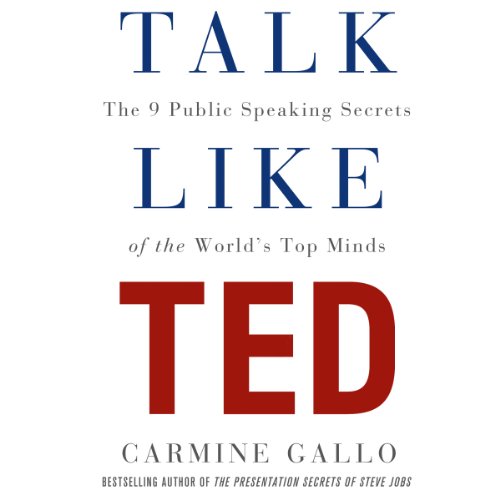
Talk like Ted recommended a prop I remembered, so I used a powder puff with mirror because Hannie always used to powder her nose before she shot a Nazi, since, remarkably enough, she wanted to die beautiful in case she would get caught. I needed a mirror because I wanted to tell the story while asking the audience, “What would you do?” If you translate the story to today’s world: people can relate to that and the question more.
WOW: Do you have any tips on garnering spots in top tier publications? Apart from becoming an expert and using effective timing, what else has worked for you?
Sophie: Hard work, timing (momentum), strategic thinking, networking, planning ahead, and a bit of luck! Curiosity, creativity, and experimenting are crucial. A book doesn’t sell itself, so I had to hire a PR firm (Smith Publicity in Philadelphia) to help me promote the book. They sent out small bios and information about the book. Goal, strategy, and presence (website, social media) are important. I keep to my own “5P Framework:” passion, purpose, people, perspective, and perseverance. (For more on 5P, interested readers can click here.)
WOW: How did you get to give those talks at libraries and events? How did you prepare for those?
Sophie: When my book became a New York Post best seller and was covered in so many top tier media, I received so many invitations to go to New York (and other places in the US and London) that I had planned to go to New York for three months with my husband and daughter in the fall of 2020 to give many talks, meet people, learn, and expand my network and from there travel to Boston and other places where I had scheduled talks. It is important to get paid for a talk. It is my profession after all, but I was prepared to do some things for free or for a small fee according to the budget of the client, as an investment for the future. Everything was planned, arranged, and scheduled, and then COVID-19 spoiled everything.
I could still do some events online luckily and some talks like the one for Violette Szabo in the UK could be postponed. In the meantime, I kept my network warm, invested, and helped people overseas by providing them information, spreading the story, and connecting people through my network or guide them around if they were visiting the Netherlands. I still plan to go to New York to get some talks and see some of the people in my network in person.
I enlisted with several speaking agencies to become a professional speaker outside of being a university lecturer; clients can be as diverse as museums, book clubs, NGOs, and transnational corporations. All presentations are tailor-made to fit the audience.
WOW: Thank you, Sophie, for sharing with us today, and best of luck with all your future endeavors.
*
Sophie is living proof that timing plays a large part in publication success, but it is not always possible to wait for the opportune moment. Do you have a niche interest that you’ve carried with you for a long time? If not directly suited to the current zeitgeist, try to make it so. Identify its themes that will resonate most directly with current readers, like a metal detector finding gold. They should then become the primary focus of your pitch. Does your story relate, even tangentially, to recent news reports? Pitch it—explicitly—as a response to these developments, often called “using a news hook.” Time waits for no one, and who wants to wait for a great story or article? Don’t time it to perfection: perfect it to the time.
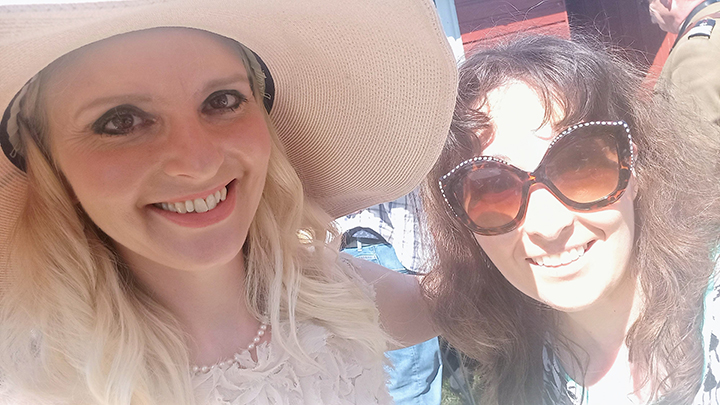
(Sophie Poldermans, left, and Rosie MacLeod, right)
Rosie MacLeod is a London-based translator, interpreter and reporter. She reports for ShoutOut UK and East London Radio. She has written for Drunk Monkeys, World Literature Today, Inside Over and the Journal of Austrian Studies. She is the host of What They Don't Tell You About the EU on East London Radio. You can listen to her radio work here: www.mixcloud.com/rosie-macleod. She tweets as @RosieMacLeod4. Get in touch via LinkedIn. Website: rosiemacleod.com. Instagram: rosiemacleod.com@rosie.macleod.3